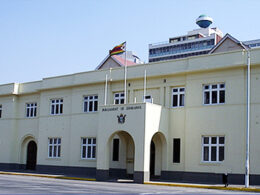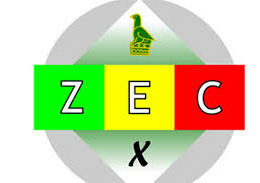The government of Zimbabwe is known for gazetting SIs, and this has raised concerns among the members of the public, as most do not know how these pieces of regulations work and are conceptualised.
What is an SI?
Statutory instruments (SIs) are a form of delegated (subsidiary) legislation that are made by government ministers under powers granted to them by an Act of Parliament.
According to a legal think-tank, Veritas, SIs are legal instruments created by the executive authority to give effect to laws and regulations passed by the legislature.
In Zimbabwe, SIs are used to operationalise and regulate various aspects of government policy and legislation. Their impact and influence on Parliament and the constitution can be seen in the following ways:
1. Role in law-making: SIs play an important role in the law-making process as they are used to implement legislation passed by Parliament. This means that they can have a significant impact on how statutes are applied and interpreted.
2. Delegation of powers: The use of SIs represents a delegation of powers from Parliament to the executive. This can raise concerns about accountability and transparency, as SIs are made without the scrutiny of the full legislative process.
3. Parliamentary sovereignty: The use of SIs can be seen as a challenge to parliamentary sovereignty, as it allows the executive to make laws that are not fully scrutinized by Parliament.
4. Judicial review: SIs are subject to judicial review, which means that their impact on the constitution can be tested in court. This helps to ensure that they are consistent with the principles of the constitution, such as the rule of law and the separation of powers.
“Overally, the impact and influence of SIs on Parliament and the constitution is complex and multifaceted. While they play an important role in implementing legislation, their use can raise questions about accountability, transparency, and the balance of power between the executive and legislative branches of government,” said Veritas.
Significance of SIs on the legislature and the Constitution in Zimbabwe?
SIs provide flexibility and efficiency in implementing laws and regulations, as they can be used to quickly and easily modify and adapt legal frameworks to changing circumstances without going through the full legislative process.
“Secondly, SIs can potentially pose a challenge to constitutional principles that aim to protect the separation of powers. Zimbabwe’s constitution provides for a system of checks and balances, where executive power is balanced by legislative and judicial oversight. However, executive overreach through SIs can undermine this system, particularly if the executive uses SIs to bypass or nullify existing legislation passed by the legislature,” said Veritas.
SIs can sometimes be used to achieve political objectives rather than being driven by legal necessity.
“For example, in Zimbabwe, SIs have been used by the government to impose restrictions on protests and civic gatherings, which some argue violates the constitutional right to freedom of assembly,” said Veritas.
“Overall, while SIs play a useful role in facilitating the implementation of legislation, ensuring that they are consistent with constitutional principles is essential to prevent executive overreach and protect the rule of law. Parliament has to play its role in making sure that its primary role is to make laws. Section 130 of the Constitution clearly outlines the powers and functions of the Senate and the National Assembly.”
How can Parliament reclaim its crucial role of oversight?
Parliament has a crucial role of oversight, and it must ensure that the government is accountable for its actions. To reclaim this role, Parliament can take various measures such as:
1. Strengthening its oversight mechanisms – Parliament can increase the number and scope of parliamentary committees to scrutinize the government’s actions effectively.
2. Enhancing public engagement – Parliamentarians should engage more with the public to hear their concerns and gather insights into how policies may affect them.
3. Increasing transparency – Parliament should promote transparency in government operations by enhancing access to information and ensuring that the public can hold the government accountable.
4. Restricting the use of SIs – Parliament must restrict the government’s use of SIs to bypass parliamentary scrutiny and ensure adequate scrutiny is conducted before enacting new laws.
“Ultimately, Parliament must assert its authority as an independent institution that represents the interests of the people and ensures that the government is accountable to the public,” he said.
Disadvantages of a whipping system in Zimbabwe
Parliament has a whipping system that has a lot of disadvantages which include:
1. Limited Freedom of Speech: The whipping system can limit the freedom of speech of Members of Parliament (MPs) as they are required to follow the party line instead of expressing their own opinions. This can lead to MPs feeling silenced and unable to express their true opinions on important issues.
2. Lack of Independent Thinking: The whipping system can also result in MPs being instructed on how to vote without fully understanding the issues being discussed. This can result in MPs blindly following party directives, without considering the best interests of their constituents.
3. Undemocratic: The whipping system can be seen as undemocratic as it allows party leaders to dictate the opinions of their MPs, undermining the democratic process. This can result in MPs feeling disenfranchised and disconnected from the political process.
4. Lack of Accountability: The whipping system can also create a lack of accountability among MPs, as they can hide behind the party line instead of taking responsibility for their own decisions. This can lead to a lack of transparency and trust in the political process.
5. Lack of Opposition: The whipping system can create a lack of effective opposition in parliament as MPs may feel pressured to vote with their party instead of holding the government to account. This can result in a lack of constructive debate and scrutiny of government policies.
Does Parliament have the power to recall an SI?
Parliament through legal committee can recall an SI if it substantively amends the primary law.
“This can be done through a court challenge. Another point is when the SI fails the Constitutionality test,” Veritas said.






